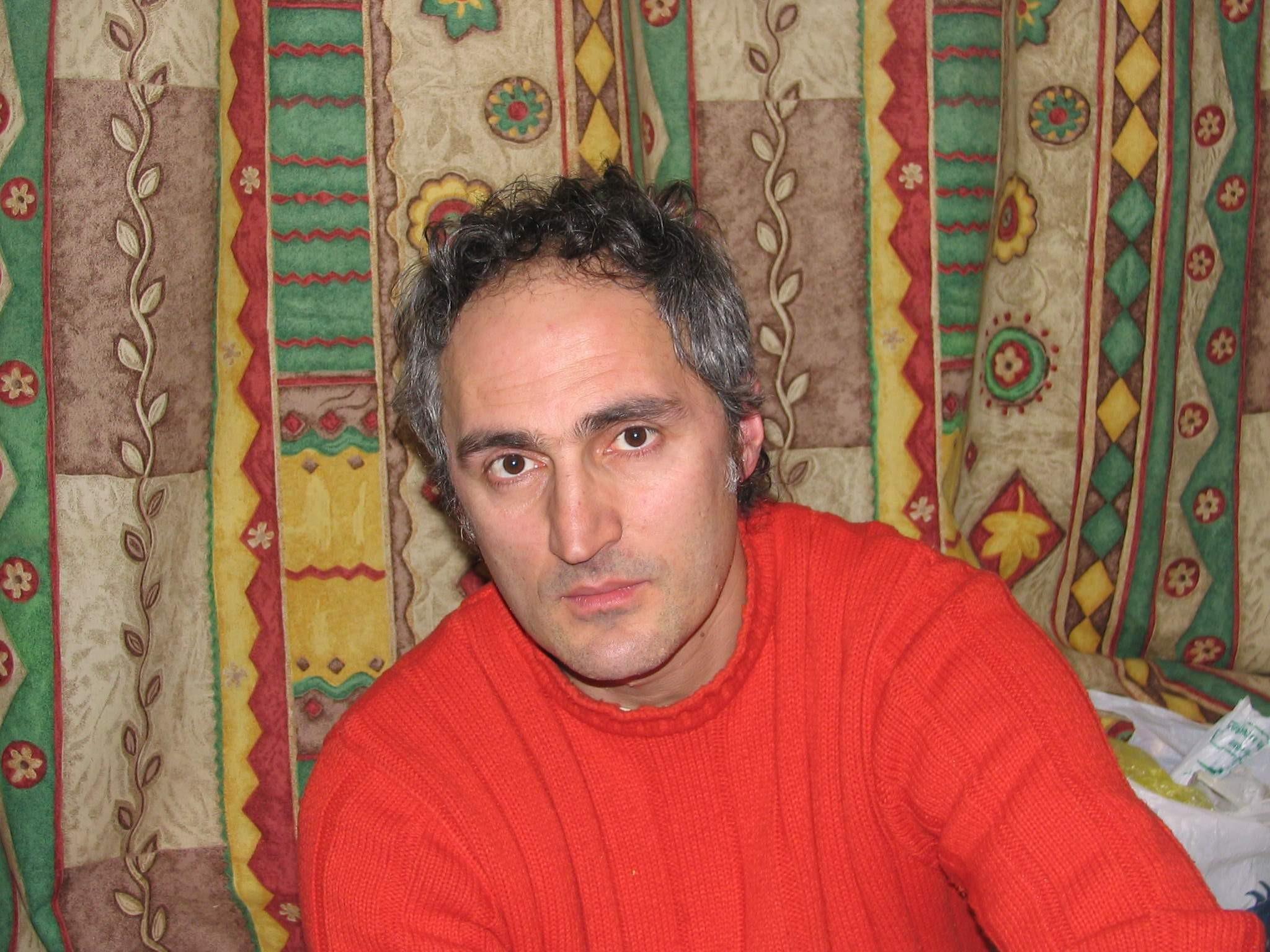
"The story of the Karabakh war has not been written yet."
An interview with filmmaker Tigran Khzmalian
"Since the collapse of the Soviet Union, a system in which art allowed a person to be, to some extent, independent and free, the status of the artist - a man of art, culture-has changed sharply. Because from a relatively independent position, a free status, we have stepped backwards and found ourselves in the most dependent state. If in the past the state ideology dominated all of us, put pressure upon us, now - as elsewhere in the world - we are under the pressure of the market," says director and screen writer, former manager of the Yerevan Documentary Film Studio, Tigran Khzmalyan.
-In your films you have addressed the Karabakh war. What do you think-- Can cinema influence the process of conflict settlement?
-I was a correspondent for the Vesti news program on Russian TV's Second Channel in Karabakh and saw the war through the eyes of a journalist. After the Karabakh war, in 1996, I made a film and it wasn't about the Karabakh war, it was about war in general. Though, of course, my main experience was the Karabakh war. It is a feature film about a village where only women are left and only one man has returned from the war. The film was awarded Grand Prix in Turkey and in Russia. It's called Black and White.
As regards movies about the Karabakh war, fortunately there are no such feature films in Armenia. For the war is numerous victims, the war is dirt, lies, turmoil, stench. A long time has to go by until we'll be able to make a truthful movie about the Karabakh war. It seems to me that such a movie won't be about hatred. I believe that the best thing we've done is that we haven't created a false, compassionate movie about the war; we haven't created a movie about hatred, since neither during the war nor after the war has there been great hatred on our part. Hatred has not been our policy, our ideology. It was a war for existence, for freedom and human rights.
Nevertheless, documentaries about the war have been made. I made one myself. Roman Mirzoyan made a big, almost encyclopedic film about the Karabakh war entitled The Liberation of Artsakh.It's a shocking ninety-minute-long documentary with amazing chronological shots. Mirzoyan made the documentary at the Yerevan Studio when I was the manager so I can say that I took part in that undertaking, too, as the producer.
And it's understandable why there aren't any feature films. Not because the war isn't over yet-for us it's over. It ended when the first oil flowed from Baku to Ceyhan. After that, the war can't resume. Those who made it happen will simply not allow a war. But the war is still going on in the minds of the people, in the minds of politicians, because both here in Armenia and there in Azerbaijan it's profitable for the authorities to intimidate people with war. That way it's easier to hide their own theft, lack of awareness. Any accusation can be explained thus: "We are a nation at war, aren't we?"
- In your opinion, what was the impact of the war on our patriotic feelings?
-For an artist, all talk about patriotism is blasphemous. After all, you can't create a party of people who love their own parents, it's ridiculous. The homeland is not a political belief. It is necessary to understand, to respect your own country, which inevitably leads to understanding, respecting peoples of other countries. This is what art in particular should do, and cinema above all.
-How are people (Azerbaijani or Armenian) as individuals with their personal problems, griefs, and expectations portrayed in films about the Karabakh war?
-I don't think there have been any rigorous films about the Karabakh war yet. The best movies won't be about the war, but about the "little" people who go on living, understanding that the war is not eternal and the world has always existed and will go on existing, in any case. Man's normal state is life, not destroying other people like him. The story of the Karabakh war and the people of this war has not been written yet. Some time is still needed to comprehend it, to be able to calmly look at what has happened. I think that wonderful movies and books will appear. When the political situation stops being so hysterical, when money is found not only for cabarets and casinos, art will have its say, and it will soothe people. Because soothing people is one of the features of art.
-And would you like to do then? What ideas would you like to realize?
-I have an idea which may be too audacious. I have suggested it to my Azerbaijani colleagues several times. I think that we can try to make a movie together - Armenians and Azerbaijanis. This could be a small but important step toward. I don't say reconciliation but a comprehension of the situation. A comprehension of the shared tragedy.
 Videos
Videos Photos
Photos
Write a comment